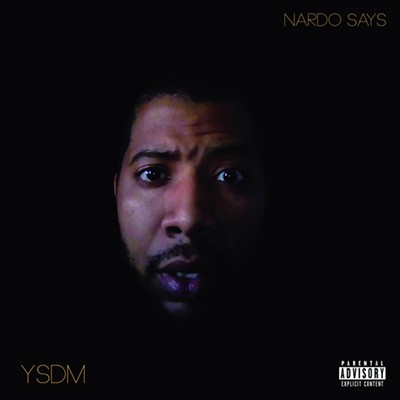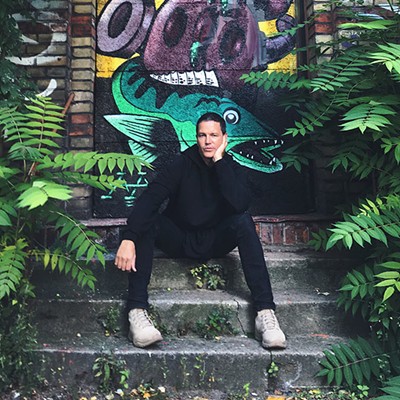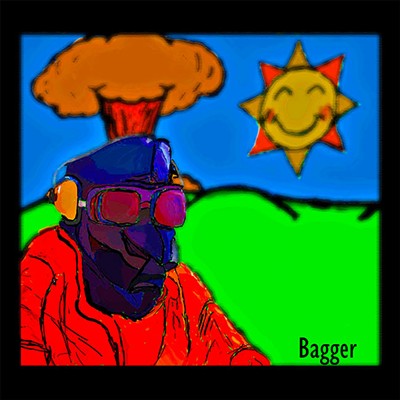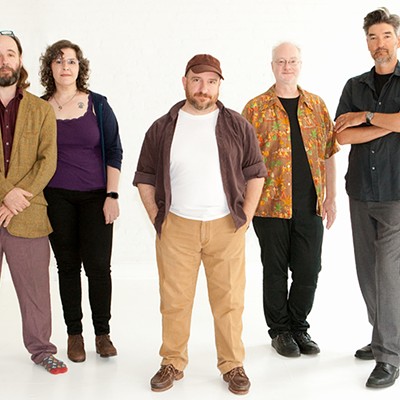Tuesday, May 31, 2011
Some words on the passing of Gil Scott-Heron
Gil Scott-Heron passed away on Friday, May 27 at the age of 62, though his legacy lives. His words can be read in five published books, his music heard on 15 studio albums as well as several live albums and compilations. Gil's music conveys a feeling -- the struggle of overcoming.
My earliest experience hearing Gil Scott-Heron was courtesy of my father's record collection. Growing up in the '90s and being enthralled in hip-hop music, my father always pushed me to explore the roots -- jazz, blues, soul, etc. For my high school senior project I did a 20-some page paper aptly titled "Hip-Hop Music." To explain the art of poetry and MCing, I printed out the lyrics to Gil Scott-Heron's "The Revolution Will Not Be Televised." While I may not have fully comprehended the song at the time, it still resonated with me in understanding the limitless possibilities of one man's voice and words. It was honest, and unique, and the subject matter wasn't being presented in the classroom.
It was that summer, 2005, that I first heard the Pieces of a Man album. The third cut, "Lady Day and John Coltrane" blew me away. The fast tempo and uplifting lyrics were great, but for me it was always the tone and range of Gil's voice that gauged my attention. Also, "When You Are Who You Are" has been a favorite from that album. This record inspired me to listen to his entire catalogue.
In recent days, since Gil's passing, I've revisited his music. Each studio album got a minimum of one listen in full, most got more than two and several tracks were put on repeat. Some songs worthy of an instant replay were "Everyday" (from the 1970 debut album Small Talk At 125th), "Vildgolia (Deaf, Dumb and Blind)" (from 1977's album Bridges), "Angola, Louisiana" (from 1978's Secrets), and "Not Needed" (from 1980's Real Eyes).
Below are comments from several Pittsburghers who have been influenced by Gil's work: activists, artists, DJs, poets, and writers. Tomorrow we'll post words from several more.
Luqmon Abdus-Salaam, poet:
I was on the same bill as Gil Scott-Heron in 1996 at the Philadelphia African Arts Festival with him and the Last Poets.
I saw him give a great performance. One of the most underrated singer songwriters, let alone poets, of our time. I also saw him in Pittsburgh, PA at the old Rosebud, again an excellent performance; this was around 1997.
He made me feel in the performances like a legend presenting his treasured work that is a timeless presentation. His deep baritone voice actually expresses the pain and celebration of black people and had the true humanity of an artist.
"The Revolution Will Not Be Televised" made me feel like this was the call for oppressed people of America and if there was a challenge to the system this song would be the soundtrack.
Jay Malls, DJ:
It's funny because I've been thinking about how I first heard him. My friend in high school's dad was a fan and he used to let me borrow his records. He turned me onto Gil Scott-Heron, Last Poets and all kinds of other stuff. And I'd heard that stuff via various hip-hop, but I had no idea who those artists were at that point. Then I started finding my own copies ...
The first Gil Scott LP I heard was The Revolution Will Not Be Televised. It's fucked up because I'd never had my own copy for whatever reason until a few years ago. I was at a record convention somewhere in Pennsylvania and I found a copy and then the friend who I mentioned called me (while I'm still at the record show) and told that his dad had passed away. So anyway, that album was amazing to me because I'd never heard anything like "Whitey on the Moon" before, which blew my mind. And then the title track resonated with me because I was familiar with it through BDP using it on Blueprint of Hip Hop.
I think I found some of the later Arista [albums] first. They all had some pretty good stuff on them. I was more into the earlier ones with Brian Jackson. There's one called Bridges that J. Rawls sampled for Black Star "Brown Skinned Lady." That album's great. Winter In America is awesome. That one has "The Bottle." There are tons of different versions of that, covers. Great tune that's really socially relevant, but it had cross-over dancefloor appeal and it's definitely a classic. I still play that a lot.
I think my favorite stuff is the really early releases on Flying Dutchman. That was Bob Thiele's label. The first album is all spoken word and the releases after that are just amazing. Pieces of a Man is probably my favorite and then The Revolution Will Not Be Televised, etc. Johnny Pate is conducting and that's where Brian Jackson comes in playing keys. It's all jazz guys, Pretty Purdie plays drums, Hubert Laws, Ron Carter, etc. It's all stellar, very sincere, heart-felt stuff. I think his appeal is really in his honesty. [He was] definitely too honest for him to ever achieve any real mainstream success, and certainly very radical for the time.
Bonita Lee Penn, poet and journalist for the Soul Pitt Quarterly Magazine:
[Gil's] lyrics were and still are a constant inspiration; a call to duty to anyone who considers themselves a real black poet. He along with other Black male poets of the Black Arts Movement, such as LeRoi Jones (Amiri Baraka) and Don L. Lee (Haki Madhubuti), lit a fire to being Black. Gil was strong and fearless with his messages demanding Black Pride, Black Thinking, "get off your ass and do something" Black people themes. I fell in love with his message. Black was beautiful and it was on the radio.
When I first heard "The Revolution Will Not Be Televised" I was a young teenager living the good life in the suburbs, but at that same time being confronted with the invisible racial division in my community. I felt isolated from the Blacks in the larger cities, I wanted to be a part of the movement, so I started making statements, one being the first Black student to wear a Dashiki to school. But I wanted to express what I was feeling through my poetry and when Gil's "The Revolution Will Not Be Televised" was broadcast over the radio, my feeling of isolation disappeared and I began to write revolutionary poetry because Gil's words woke me.
Through his music I found my cultural identity and my reason for writing poetry. Whenever I attend a writing conference or sit and discuss poetry, Gil Scott-Heron's name always comes up. My thing is, who will take his place? His music/lyrics live on, but who will continue to light that fire under black folks' asses?
Paradise Gray, activist and member of the X-Clan:
I saw him perform a couple of times. He was incredible. He comes from the jazz tradition, he did spoken word over jazz and blues ... People that [would] go to see him, they knew what to expect when they got there. He's a legend. He's a prodigy. He's been incredible as a musician, and as a poet, his whole life. So, his reputation precedes him. Most people that go to see Gil Scott-Heron can spit his words like Rakim fans ... like Biggie fans, when they go to see Biggie they know what it is. You go with that mindset that you're the student going to learn something as well as hear something. You're not just going to be entertained, you're going to be inspired ...
In the South Bronx when hip-hop was being developed, Gil Scott-Heron was living in the Bronx. So we were aware of him and his poetry and what he was doing with his music ... Gil Scott-Heron himself, he didn't accept that he was one of the founding fathers of rap and hip-hop. He proclaims that he's more from the blues and jazz experience than the hip-hop.
We did a few different festivals as X-Clan, and many times we'd be booked aside Gil Scott-Heron. He was a highly intelligent dude, very artistic, and a great musician, not just a poet but a musician also. He prided himself on his music, rather than just his rap ...
The first time I heard "The Revolution Will Not Be Televised" I thought it was incredible. I come from an era where we had legend, after legend, after legend. Our elders are some of the most creative and incredible people that ever walked this planet, especially the elders that created music during the '70s and '80s, when they made real music and creativity was celebrated rather than stifled like it is in today's music industry in general ...
He was an incredible artist who got caught up in a lot of things in life that a lot of our elders got sidetracked with. But I won't judge him as a man, judgment belongs to God alone. As an artist, he's one of the best there ever was. I want him to rest in peace. I'll always remember his contribution.
Tags: FFW>>













